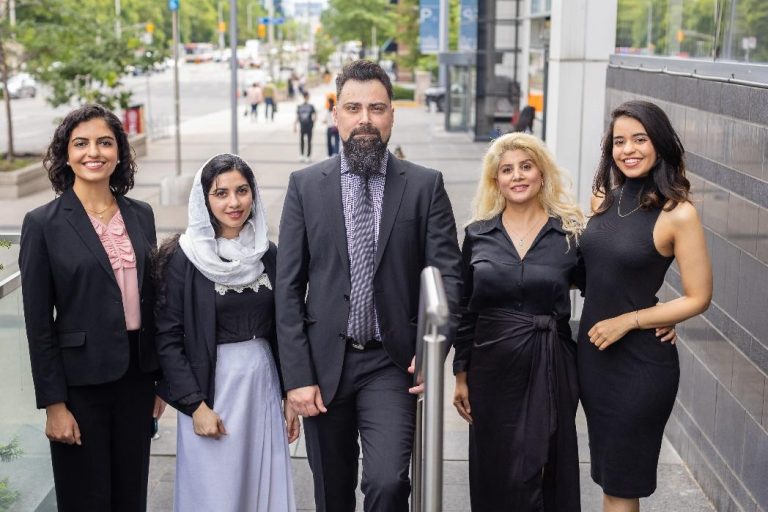ONTARIO PROVINCIAL NOMINEE PROGRAM
The OINP is meticulously crafted to address Ontario’s economic priorities and labor market requirements. By attracting and retaining skilled workers, entrepreneurs, and individuals with specific qualifications, the program seeks to contribute to economic growth, address workforce gaps, and foster the overall development of the province. This targeted approach ensures that immigration efforts are in harmony with the distinctive needs of Ontario’s ever-evolving economy.
An integral aspect of the OINP is its integration with the federal Express Entry system. Express Entry, a points-based immigration system, manages applications for permanent residency in Canada. The OINP aligns certain streams with Express Entry, enabling Ontario to nominate candidates directly from the Express Entry pool. This seamless integration enhances the efficiency of the immigration process, ensuring it remains responsive to the evolving needs of both the province and the broader Canadian immigration system.
STREAMS UNDER OINP
The Ontario Immigrant Nominee Program (OINP) employs two intake systems to process applications. Before initiating the application process, individuals must enroll in either the Expression of Interest (EOI) system or the Express Entry system, indicating their interest in receiving an invitation to apply. The OINP comprises nine streams, each with specific eligibility criteria.
- Ontario’s Expression of Interest Streams: The following streams function through the OINP’s Expression of Interest System, necessitating the registration of an expression of interest and subsequent receipt of an invitation to apply.
- Foreign Worker Stream:
- For skilled foreign workers holding a job offer in Ontario.
- International Student Stream:
- Geared towards recent graduates with a job offer in Ontario.
- In-Demand Skills Stream:
- Designed for foreign workers in in-demand occupations with a job offer in Ontario.
- Masters Graduate Stream:
- Targeted at individuals with a master’s degree from an Ontario university.
- PhD Graduate Stream:
- Tailored for individuals with a PhD degree from an Ontario university.
- Entrepreneur Stream:
- For foreign entrepreneurs with compelling business ideas, offering an opportunity to establish a new business or acquire and expand an existing one in Ontario.
- Ontario’s Express Entry Streams: The following streams operate through the federal Express Entry System. Eligibility requires an existing Express Entry profile and the receipt of a notification of interest from Ontario.
- Human Capital Priorities Stream:
- Applicable to individuals with the requisite skilled work experience, education, and language proficiency.
- Skilled Trades Stream:
- Suited for foreign workers with Ontario work experience in an eligible skilled trade.
- French-Speaking Skilled Worker Stream:
- Intended for French-speaking foreign workers with strong English language skills, aligning with the province’s workforce needs.
These streams provide diverse pathways for individuals with different qualifications and circumstances to secure nomination from Ontario for permanent residence. It is crucial to carefully review each stream’s requirements and stay informed about any updates or changes to the application process.
HOW TO APPLY
- Create an Express Entry Profile (if applicable):
- If applying through Express Entry streams, the applicant needs to create a profile in the federal Express Entry system.
- Submit an Expression of Interest (EOI):
- For some OINP streams, applicants need to submit an Expression of Interest to indicate their interest in being nominated by Ontario.
- Receive Notification and Apply:
- If selected, applicants receive a Notification of Interest (NOI) from Ontario and are invited to apply to the OINP.
- Complete and submit the application along with all required documents.
- Nomination and Application for Permanent Residence:
- If the application is successful, the applicant receives a provincial nomination.
- With the provincial nomination, applicants can apply for permanent residence to the federal government.
- Federal Processing and Approval:
- The federal government reviews the permanent residence application.
- If approved, the applicant and accompanying family members become permanent residents of Canada.
Applicants should check the specific requirements and processes for the stream they are applying to within the OINP or any other PNP, as details may vary. Consulting with an immigration professional or referring to the official government websites is advisable for the most accurate and up-to-date information.
GET HELP
Engaging legal representation when applying for the Ontario Immigrant Nominee Program (OINP) is advisable due to the intricate nature of immigration processes. A qualified immigration lawyer guides applicants through complex legal procedures, ensuring eligibility, compliance with program requirements, and optimization of Comprehensive Ranking System (CRS) scores for Express Entry streams. Legal professionals also address inadmissibility concerns, staying abreast of evolving regulations and providing advocacy in case of challenges. Their expertise minimizes the risk of errors, enhances the application’s strength, and increases the likelihood of a successful outcome in the OINP application process.
CONCLUSION
By actively engaging with the federal Express Entry system, the OINP streamlines the immigration process, allowing the province to nominate individuals directly from the Express Entry pool. The integration of both Expression of Interest (EOI) and Express Entry streams ensures a tailored approach to attracting skilled workers, entrepreneurs, and individuals with specific qualifications, aligning with Ontario’s dynamic economic demands.
The diverse array of streams under the OINP caters to individuals with varying qualifications and circumstances, offering targeted pathways for skilled foreign workers, international students, entrepreneurs, and graduates. Each stream is meticulously designed to contribute to Ontario’s economic growth, address workforce gaps, and foster overall development.
At Kozyrev Law, we pride ourselves on providing comprehensive legal support to individuals navigating the intricate landscape of the Ontario Immigrant Nominee Program (OINP). Our dedicated team possesses a deep understanding of the program’s nuances and requirements. We offer invaluable guidance to applicants, ensuring their eligibility, compliance with program specifications, and optimal positioning within the Comprehensive Ranking System (CRS) for Express Entry streams. Beyond the application process, we address potential inadmissibility concerns, stay abreast of evolving regulations, and provide steadfast advocacy in the face of challenges. With Kozyrev Law, applicants benefit from our expertise, minimizing the risk of errors, strengthening their applications, and increasing the likelihood of a successful outcome in their OINP journey.
(416) 900-0933 
 FAMILY LAWYER SERVING ALL OVER GTA
FAMILY LAWYER SERVING ALL OVER GTA









“Guiding clients through the complexities of immigration and family law is (both) a privilege and a passion for me. With over a decade of experience in the immigration industry, I have witnessed firsthand the transformative power of helping individuals and families find their place in Canada.”